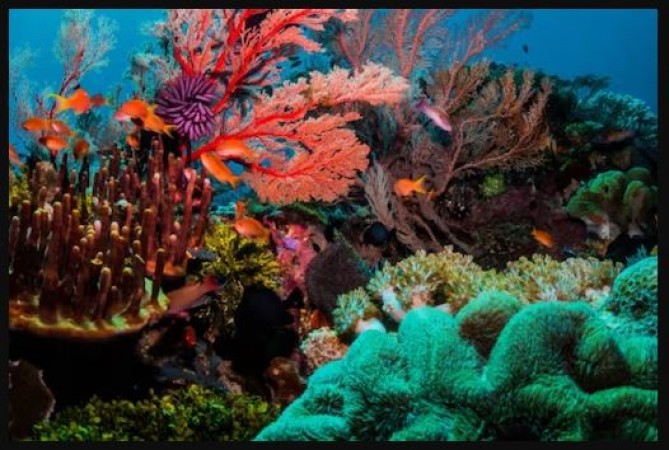
Coral reefs, often referred to as the "rainforests of the sea," are among the most diverse and vibrant ecosystems on Earth, supporting a plethora of marine life and providing essential ecosystem services. However, these invaluable ecosystems have been under severe threat due to rising ocean temperatures caused by human-induced climate change. A recent study, published in the journal Nature, sheds light on a new approach to coral reef conservation that offers hope for their survival in the face of escalating challenges.
The Study's Background and Methodology:
The study, led by marine ecologists Gareth Williams from the UK's Bangor University and Jamison Grove from the US National Oceanic and Atmospheric Administration, is based on two decades of data collected from the coral reefs surrounding the US island of Hawaii. The researchers utilized high-resolution data and thousands of hours of underwater surveys to investigate the intricate connections between human impacts, specifically land-based and sea-based factors, and the recovery of coral reefs following instances of heat stress.
Key Findings:
One of the study's notable findings is that not all coral reefs respond equally during heatwaves. Amidst an unprecedented marine heatwave in Hawaii in 2015, approximately 18 percent of the surveyed reefs exhibited unchanged or even increased coral cover, defying expectations. The researchers attributed this resilience to the level of strain imposed on the reefs by various human pollutants and the presence of algae-eating fish that facilitate regrowth.
The study underscores the critical interdependence of both land-based and sea-based human impacts on coral reef health. Co-lead author Gareth Williams emphasized that in order to ensure the persistence of coral reefs, efforts to mitigate these impacts must be comprehensive and simultaneous. This holistic approach offers a potential pathway for effective conservation measures, with the study's modeling indicating that addressing both land and sea issues together increases the likelihood of reef regrowth after a heatwave by up to six times compared to separate efforts.
Challenges and Implications:
While the study offers a glimmer of hope for coral reef survival, the researchers also sounded a cautionary note. The escalating frequency and severity of coral bleaching events caused by rising ocean temperatures due to human-caused climate change could potentially outweigh the benefits of localized conservation efforts. This highlights the urgent need for broader global action to address the root cause of coral reef decline: climate change.
The study's release comes in close proximity to the revelation that the world's oceans recorded their highest-ever temperature on July 30th, underscoring the pressing nature of the challenge at hand. To compound these concerns, the United Nations' commitment to conserving 30 percent of the planet's land and ocean by 2030, though laudable, underscores the need for immediate, comprehensive, and coordinated efforts to safeguard biodiversity and vital ecosystems. In a world grappling with the consequences of climate change, the study's findings offer both hope and urgency. While the holistic approach to coral reef conservation holds promise, the study's authors emphasize that these localized efforts must be coupled with global action to mitigate climate change. Ultimately, the fate of coral reefs and the myriad of species they support rests on a collective commitment to address the root causes of their decline, ensuring a sustainable and vibrant future for these remarkable underwater ecosystems.
OpenAI's ChatGPT: From Success to Financial Struggle
Health Tips for a Stress-Free 77th Independence Day
Best Laptops Under Rs. 50,000 for Remote Work and Online Learning